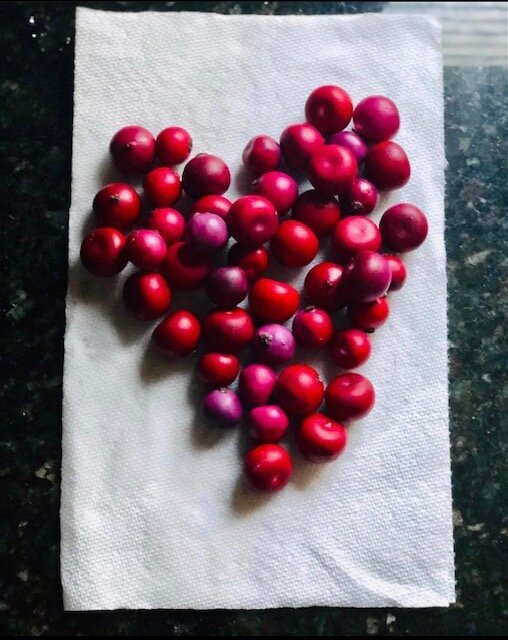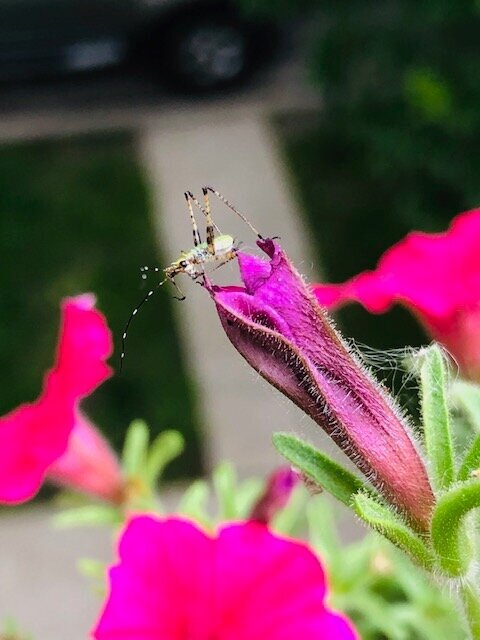How Your Creative Outlet Influences Your Body
When we’re calm, we might see things we’d otherwise normally miss. This is a photo I took of the Chicago River. Yes, the Chicago RIVER.
When we’re calm, we might see things we’d otherwise normally miss. This is a photo I took of the Chicago River. Yes, the Chicago RIVER.
If I were to ask you right now, “What’s your creative outlet?” would you be able to answer me immediately? Some people find a creative hobby or passion when they’re young and are able to parlay it into a career; on the opposite end, when I ask some people that, they’ll say, “I don’t have one.” The truth is that most of are somewhere in the middle—except that no one *doesn’t* have at least one creative outlet. We are human; we are intrinsically creators—it’s inescapably what we do and who we are. As young as toddlers, we begin to play— we build things, we create, we problem solve, we get the creative energy inside us out. That never leaves us. But how do we tap into it as adults, and how can it help how we move, look, and feel?
Creativity starts as play when we’re kids, and it never leaves us.
Creativity starts as play when we’re kids, and it never leaves us.
When I get the pushback of, “I don’t have a creative outlet,” it usually means that person hasn’t identified something they already do as creative. Creativity needn’t be limited to drawing, playing an instrument, or turning old wooden pallets into a DIY coffee table. Creativity can look like cooking, organizing, playing with Legos, or even playing video games that require you to design or build things. What I’m looking for here is an activity that forces you to use your hands and focus on a task that changes something from one state to another based on the choices (or accidents) you make.
I take interesting photos and also play with food
I take interesting photos and also play with food
When we do this and are focused, it tamps down the brains ability to ruminate or daydream about the future—those pesky anxiety inducing behaviors we’re all guilty of. While that can have a beneficial time and place, if we do that during most of our waking hours without relief, we’re going to be tightly wound little balls of stress and anxiety. Taking time to recognize your creative outlet, and intentionally devote some time to it, can reduce anxiety and stress, and give us a sense of accomplishment and even mastery—all things that keep that little voice in our head sending our bodies positive messages.
Creativity helps us problem solve. And that’s important because while I can give you guidance and tips, at the end of the day, your particular mix of obstacles and interests will lead you to your version of health. Maybe you work 60 hours a week, maybe you take care of multiple children or your aging parents, maybe you have multiple or severe food allergies, maybe you like ju jitsu and hate running, or have scoliosis, or an autoimmune disorder that zaps your energy for days on end— these are all things that pertain to my actual clients right now. So we need to be able to problem solve how to get to their goals given both the barriers and assets. This is where you have agency over what your health journey needs to look like. I can tell you that your first meal of the day needs more protein, but if you have kids to get to school, a dog to walk, and an egg and dairy allergy, that’s where we need to get creative. Because there’s always a solution, you just have to find it. There is no barrier so great you can’t be the healthiest version of you. It may seem counterintuitive, but the more frequently you can exercise the skill of making health your number one priority and find solutions to your personal barriers, the easier it gets. It becomes less daunting, and more just how you begin to think and view your world. How can your likes and challenges work in conjunction to serve you?
Or work on my urban gardening skills I’d never attempted prior to my 30’s
Or work on my urban gardening skills I’d never attempted prior to my 30’s
Whether or not you hear the exact words, “Yes, Jessica! You did an amazing job! You finished planting all those flowers and you did great!” –our brains (and thus our bodies) feel the proverbial pat on the back, job well done. The more frequently we can find ways to be proud of ourselves for having achieved something, the more likely we will be to carry out other tasks that may be more difficult—say, deadlifting the equivalent of our bodyweight. Our bodies need to hear those messages regularly to create that loop of “Yes, I may not want to do this, but I know it’s good for me and I’ll feel better afterwards.” This kind of thinking can easily bleed over to exercise and training. When we succeed in this way, dopamine gets released into our brains—the neurotransmitter that is responsible for motivation. While you may not feel motivated in a moment to workout, if you spent part of yesterday feeling proud of yourself, you’re going to be more likely to push through a tough workout today. We want that dopamine back. Taking time to intentionally dedicate yourself to a creative outlet takes discipline just like anything else worth doing. I’m not always in the mood to start a project, but I know I’ll feel calmer and happier if I just do it.
Exercising creative outlets has been shown to reduce stress, increase happiness, improve our immune system function, and even make our brains sharper as it utilizes various parts of the brain in conjunction with each other. The repetitive motions made with the hands via knitting, writing, or another creative outlet of your choice can also help us process trauma—again, reducing our overall levels of stress and anxiety on the body. And when we can more effectively regulate the nervous system, the calmer we feel, the better we move, and the better we can perform--and look.
And there’s no set amount of time you have to devote to it. What’s important is that you can identify it as a creative outlet, and recognize that time as important for you, and then do it with some kind of regularity. Remember, it’s called an “outlet” for a reason—it’s something that exists in you whether you know it or not, and releasing that creative energy helps us appreciate ourselves in a meaningful way. And the more appreciation you have for yourself, the more likely you’ll be to take good care of yourself. Create the feedback loop: being creative begets a happier, healthier you, and the happier and healthier you are, the more creative you may be inclined to be, and so on and so forth. While I had never really thought of myself as a particularly creative person, once I started honing one creative outlet, it seems I kept finding another, then another. All of the photos on my site are ones I’ve taken, and will stick to that as I go alone. It pushes me to think quickly and creatively. So what’s your creative outlet?
What might you be missing?
What might you be missing?





